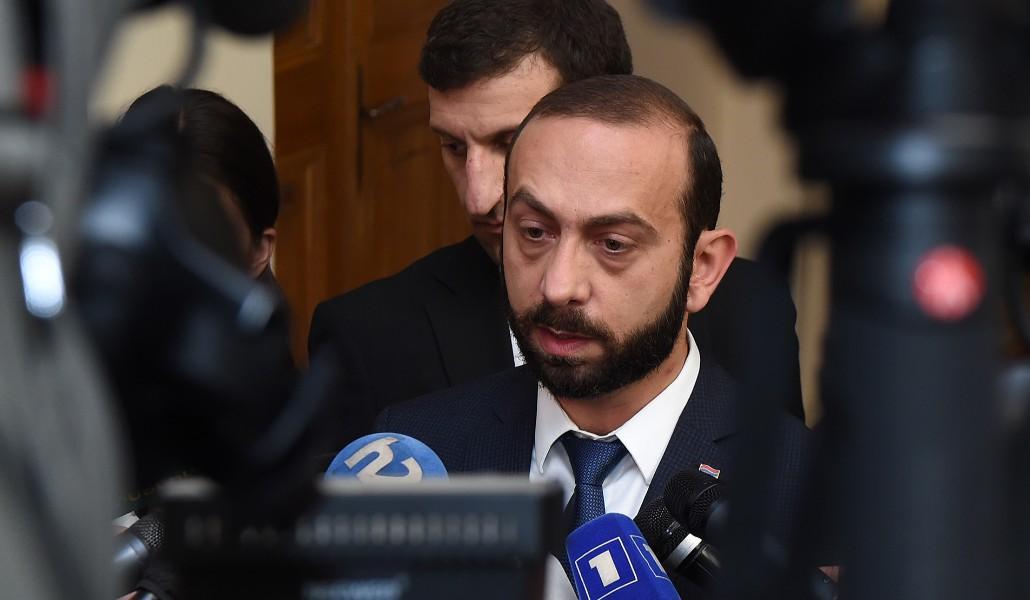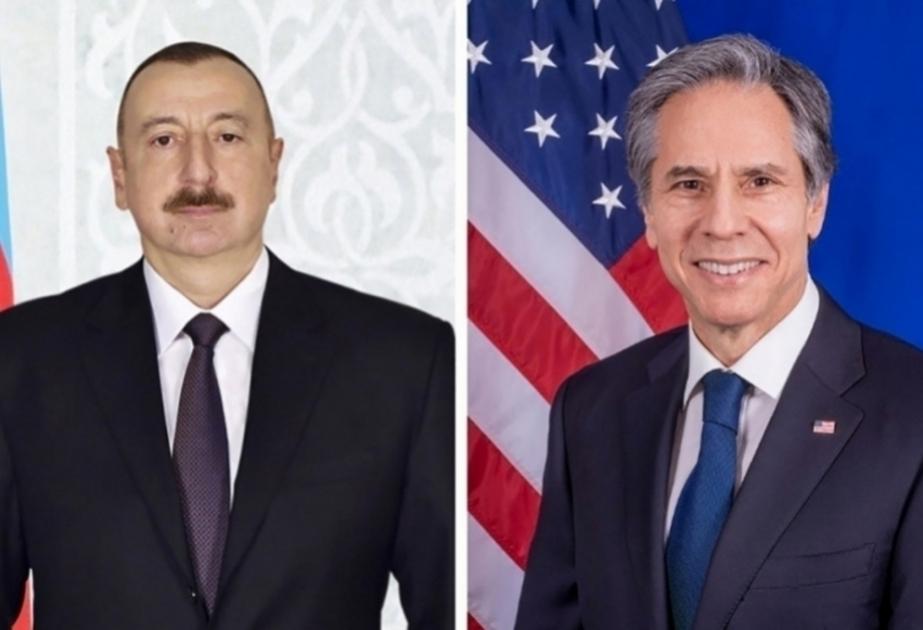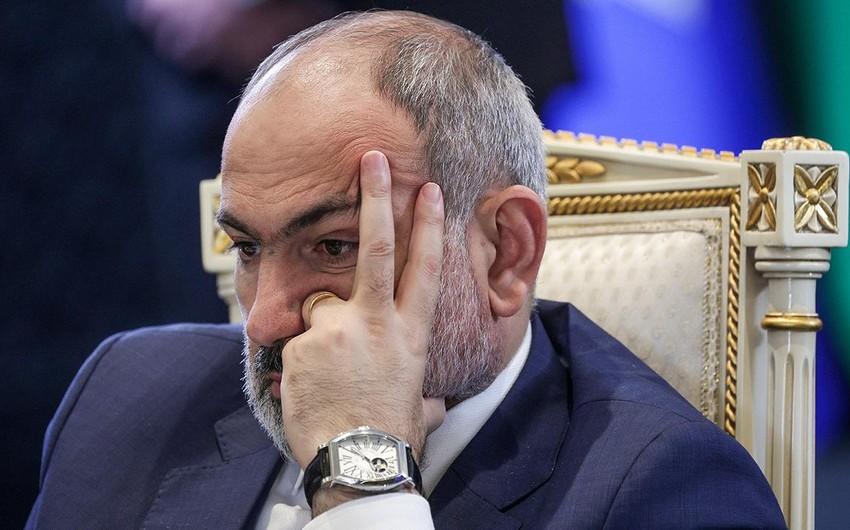Armenian PM, his team chattering senselessly Yerevan's unclear logic
There is stability in the world. It is spring 2024, and Armenian Prime Minister Pashinyan and his entourage continue making one statement and then other statement.
Proceeding from the latest signals from Yerevan, then, as it was expected, a meeting among President of the European Commission Ursula von der Leyen, Armenian Prime Minister Nikol Pashinyan and US Secretary of State Antony Blinken in Brussels on April 5, despite the sides’ ordinary statements, is having an effect on the peace settlement between Azerbaijan and Armenia.
As it was expected, this effect is negative.

First, Armenian Foreign Minister Ararat Mirzoyan said in an interview with Armenia’s Public TV Company that peace negotiations had stalled because Armenia and Azerbaijan failed to agree on two issues, namely, mutual recognition of territorial integrity and the opening of routes. He referred to the Almaty Declaration of 1991, allegedly recognised by Yerevan.

If Mirzoyan’s words given ambiguity cannot be called categorical, then Pashinyan’s recent statements clarified the situation by demonstrating Yerevan’s intention to freeze the negotiation process.
Thus, Pashinyan announced Armenia’s readiness during a phone conversation with German Chancellor Olaf Scholz to implement decisions based on the principles agreed in Prague on October 6, 2022, in Brussels on May 14 and July 15, 2023, and in Granada on October 5, 2023.
That is, Pashinyan decided to combine into one context the meetings and statements that were made with Azerbaijani President Ilham Aliyev with the Granada meeting and the corresponding statement made there, in which President Aliyev did not participate.
The Granada statement is a gross interference in Azerbaijan’s internal affairs, stipulating the unconditional return of the Armenians who voluntarily resettled in Armenia to Karabakh.
President of the Armenian National Assembly Alen Simonyan agreed with Pashinyan.
“Perhaps we will refuse to sign anything if we do not come to an agreement,” Simonyan said.
The statements made by the Armenian top officials show that the Armenian leadership is inspired by the results of the meeting in Brussels. The supply of weapons to Armenia, which was agreed upon behind closed doors, obviously created Yerevan’s illusion of impunity and the possible revenge.
The military alliance between the West and Armenia could be hardly called as constructive, reflecting the desire of the Armenians to distance from Moscow’s instructions.
If Armenia wants to change its overlord from eastern to western one, theoretically there is nothing seditious here. However, this would be true only in one case - if such distancing from Moscow and establishing relations with the West would simultaneously help speed up the peace process with Azerbaijan.
In fact, the whole process, on the contrary, is accompanied by a negative policy towards Azerbaijan, interference in Azerbaijan’s sovereign affairs. This means that the alliance between the West and Armenia is offensive rather than defensive and it is directed against Azerbaijan.
President Aliyev said during a phone talk with Blinken before the meeting in Brussels that the upcoming meeting is aimed at “creating dividing lines” in the South Caucasus and “isolating Azerbaijan”.

While speaking at a governmental meeting in the Armenian National Assembly, Pashinyan, as if having heard the Azerbaijani side’s thoughts, made more constructive statements.
“We have such expectations that some allies or relatives will come and solve our problems. The solution to our problems must begin here - from the methodology for solving them. We must solve all our problems,” Pashinyan said.
Then, Pashinyan continued the conversation about the intricacies of national psychology.
“Armenian MPs and me knew about the psychology and traditions of historical Armenia. Only in 2022 we noted that the key factor in ensuring the security of the Republic of Armenia has been ignored since the first years of the country’s statehood - these are the internationally recognised borders of Armenia.”
Indeed, only after the Azerbaijani Armed Forces responded to the ongoing armed provocations of the Armenian military and politely clarified the border issue in September 2022, Pashinyan declared recognition of Azerbaijan’s territorial integrity in Prague.
These were only words because Armenia did not withdraw the remnants of its army from the Azerbaijani territory temporarily monitored by the Russian peacekeepers until the anti-terrorist measures in September 2023.
Pashinyan also said that delimitation of the border in Tavush (Tovuzgala) could prevent a new war with Azerbaijan, but he does not guarantee that there will be no war.

“The refusal to resolve the issue absolutely guarantees a new war. This negative guarantee must be neutralised. We are not against starting the delimitation process from the Tavush region (Tovuzgala) and four villages of the Gazakh district of Azerbaijan,” Pashinyan noted.
It is necessary to admit that Pashinyan is forced to play a delicate game related to the issue of returning four non-enclave villages, voicing the need for such a step.
After all, the representatives of the Republican Party of Armenia are trying to use pseudo-patriotic sentiments and raise the question of the impossibility of returning Azerbaijani villages amid the alleged annexation of Armenian territory on the conditional border by Azerbaijan during the hostilities in September 2022.
Pashinyan emphasises that 2022 has become a turning point and proposes to remember it as a lesson.
Indeed, proceeding from the September battles, the border between the countries is conditional as there is no delimitation and one side does not recognise the territorial integrity of other side.
The Azerbaijani army did not invade other country’s territory or occupy Armenian settlements. However, four occupied villages of the Gazakh district of Azerbaijan are settlements that must be unconditionally returned to Baku and the Azerbaijanis expelled from there must return there.
Pashinyan is trying to convince his fellow citizens that the villages must be returned, otherwise Azerbaijan will return them by force. In general, Pashinyan’s short-term perception of the real situationsshould not distract Azerbaijan from the main thesis - revanchist sentiments in Armenia will intensify and will be strengthened from the outside. The lack of real steps to change the constitution and military agreements with the West are disturbing.







